Addressing Hate Speech
Cleveland Community Trying To Emerge From Year of Hurtful and Harmful Hate Speech, Including the Blackface Cake Incident
Clarion photo Andy Sorensen
Peter Predisik, Michael-Ann Scardino-Moore, Lily Rayor, Paris Davis, and Ari Periche speaking at the student panel on May 1.
May 24, 2019
In late April 2019, a cake decorated by two students in a Cleveland culinary class made headlines locally and abroad as the “blackface cake,” a chocolate cake decorated with exaggerated features resembling a racist caricature. The images of the cake, posted on social media and then later taken down, sparked feelings of disbelief, disgust, anger, and fear. As more incidents of hate occurred following the blackface cake, and all of this after the acts of anti-Semitism earlier in the year, the Cleveland community is looking for ways to learn and move forward to create a safe school for all.
On Thursday April 25, 2019, the culinary teacher gave two female students in fifth period a chocolate cake in the mold of a face to decorate. “He walks up with the cake, no face yet, just the black mold, and he just says, ‘Can you guys give Alfonzo a face?’” said a sophomore boy in the class.
The student, who the Clarion is not naming, said he was in the group but did not work on the cake. He said one of the girls said she would decorate it, because she knew how to do the piping, and the teacher gave them the materials they needed. “She basically traced the outline of where the eyes were and the mouth,” he said.
The molds, which included the pre-formed outline of the eyes and mouth, were similar to a ceramic face project the year before in 2018 and whose images had been posted on the class Twitter account.
Upon completion the two girls posted a photo of themselves with a third student who did not work on the cake that they asked to join them on Instagram holding the cake with the caption “Meet Alfonzo.”
Student Body President Peter Predisik saw the image and went towards the end of seventh period to verify it was real.
“The first time I went there, my intentions were to look at [the cake] and make sure it was real,” he said. “Because at first, I thought it wasn’t real. Believably, if you looked at the picture, you thought it was a sick joke, and that’s what I thought it was until I actually saw the real thing. Then my second intention when I went back was to make sure [the cake] didn’t just disappear.”
It is common practice for the culinary class to sell their goods. Predisik said a fellow student who had accompanied him asked the teacher how much the cake would cost, and the teacher told them it would be $10. The student didn’t buy the cake.
Predisik decided during lunch to return and buy the cake. “I thought about it and my friends wanted to see it and I was like, ‘OK, I’ll take them over there.’ So I saw it again and was like, if anyone else gets this, [either] it’s gonna disappear and no one’s ever gonna know, [or] they might just add onto the joke. So I just bought it there for $10 dollars,” he said.
Predisik said he intended to take the cake home to show his parents, but administrators wanted the cake to stay in the building, so his parents were asked to come in.
As to what happened to the cake, Predisik isn’t sure what happened to it. “I have no idea where it is. It’s here in the school. I hope it’s not destroyed, and if it is, it would place them in a bad light. But if it isn’t [destroyed], then [it would look like they were holding onto] a symbol of hate,” he said.
In a letter shared with students at a school-wide panel on May 1, one student of color wrote, “The cake caught me by surprise. I can’t believe it was made and that it was approved by the teacher. In this day and age … how did they not know this is blackface?”
The students involved in the decorating of the cake and the Instagram posts received intense backlash from the incident, including death threats. The Clarion reached out to the students but they were unavailable for comment at the time of publication.
The day after the initial post, Friday, April 26, 2019, culinary students reported to the Clarion that the teacher was escorted from his classroom by administration during second period without explanation. Although the administration cannot comment on staff disciplinary matters, the teacher has not returned to the classroom since the incident as of press time. The teacher did return in the fall of 2019 to teach, but retired at the end of the year in 2020.
Principal Ayesha Freeman later sent out an email after school on that Friday to address the social media post. “We understand there was an event yesterday that was hurtful to our students and staff of color,” she said in the email. “We are working together towards a restorative process to heal our community from the hurt and harm that has been caused by a series of incidents this year.”
In addition, Nick Paesler, the PPS board student representative, and Predisik, the student body president, both released statements in the email.
“Cleveland High School and all of PPS has a no tolerance policy for racism and acts of hate…We are here to learn and thrive as students with our teachers and staff supporting us all through our four years,” said Paesler, a Cleveland senior.
“This moment is a teachable moment for us,” said Predisik, also a member of the Black Student Union. “This moment should not end with hate, but with education. This moment could cause fear in my community, where we fear for our lives. And it can cause fear outside of my community, fear that they might be experiencing for the first time.” He added, “It should be like this: it should end in education, because we are an establishment of education, not an establishment of fear.”
That afternoon, senior Brody Kreiter took to Twitter to express his feelings over the incident as well as detail what happened. The thread quickly went viral and was picked up by several news outlets including The Oregonian, who then wrote a story about the incident and published it in their Sunday paper.
Prior to the blackface cake, in the early morning of April 22 before school started, a teacher found a three-foot rope tied into the form of a noose. The noose was tied to a pipe in an entryway, and the teacher took it down immediately and brought it to the administration. No one has been found responsible as of press time.
With tensions running high, social studies teachers over the weekend of April 27-28, led by Steve Nims, developed a lesson about the history of blackface and racism in the United States that was taught the next week.
History teachers also said they have been covering the issue in the curriculum throughout the year.
“In the broader context of the HOTA class, moreso this year than I did last year, with the other teachers, a sort of theme or ‘enduring understanding’ is the idea of race as a social construct. So we’ve been dealing a ton with race and identity the whole year. It’s been like an undercurrent throughout everything that we’ve done and so unless you were totally asleep and not present during class you would have certainly picked something about race and it being a construct and how it’s abused, how it’s ingrained into our history through our laws and our economy,” said social studies teacher Tim Graham.
On Monday, April 29, Freeman sent out an email to Cleveland students and parents addressing the situation and their plan for next steps. That same afternoon a student found racist vandalism in a girls’ bathroom and reported it. In response, administration set up a safe space the next day for students to get support from the Cleveland counseling staff and district level supports from the student services department.
On Wednesday, May 1, Black Student Union students and Student Success Advocate Charles Hunter held a panel to address the recent racist and hate events including the blackface cake, bathroom vandalism and overall feelings of safety and security at Cleveland. In the beginning, Hunter read reactions that students had written in response.
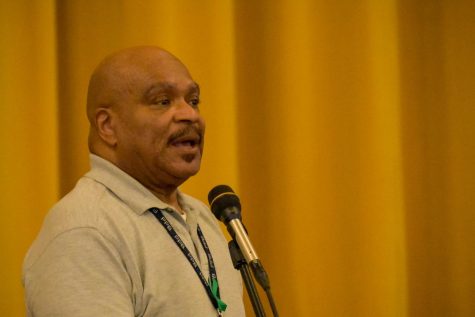
Student Success Advocate Charles Hunter addresses the student panel on May 1.
“I feel like this cake really hurt me so much that I couldn’t sleep for the whole weekend and can’t work in my school environment,” one student wrote.
Another said, “Seeing this image as an African American student at Cleveland (a predominantly white school) made me feel angry and uncomfortable in my own school or what I thought was also my school. I hope that people that dismiss this act will understand that while to them it may not seem that big of a deal because of what they said their intentions were, it impacted myself and others in the black community very strongly in a negative way, leaving us in lost emotions. I feel that with an ignorant act like this, it has, and will lead to more traumatizing events towards black people. The fact is [that this is] a microaggression and microaggressions cut deep.”
Another wrote, “As a student of color, I feel hurt, upset, conflicted, a million feelings I can’t put into words. For me, events like a noose found in a doorway, a chocolate cake resembling blackface, a drawing of the Ku Klux Klan on a bathroom wall, make me feel helpless. I feel more scared in my school, an environment that is supposed to make me feel included and safe than I do already as a black kid in my daily life. I’m scared of police, doctors, teachers, scared for my health and safety, because the fear of black people and racism ingrained in them puts my life at risk.”
Then students Peter Predisik, Michael-Ann Scardino-Moore, Lily Rayor, Ari Periche, Paris Davis and Mila Sloan spoke about their reactions and experience with the group. Every student on the panel said they felt exhausted and frustrated by the events. After that, people from the crowd had the opportunity to make questions or comments. The panel focused primarily on the impact that the community felt due to actions of others.
Hunter also informed students attending the panel that the students involved in the blackface cake incident and students from the Black Student Union participated in a Restorative Justice circle on Tuesday, April 30, the day before. Restorative justice is an approach that works to repair harm and resolve conflict through mediated discussions that help students take responsibility for their actions. It is an alternative to traditional discipline that focuses on punishment.
Hunter met with the BSU and members of the Cleveland Alliance for Racial Equity (CARE), and together they decided that “We did not want to go after individuals or persons, that we wanted to tackle the issue, and that we wanted to take advantage of this opportunity that has been presented to us, to use it as a teachable moment,” said Hunter. The decision was made to use restorative circles, where the students who made the cake have facilitated conversations with the BSU.
“This is not only happening here in Cleveland, but it is happening here, and in the city, and in the state, and in the nation, and we know the spotlight is on us, so we wanted to set an example that others could look at,” said Hunter.
One of the BSU students who participated in the restorative circle with the three girls shared thoughts about it at the panel event in a letter. “I have spoken with these girls. I am willing to stand by their side as they apologize to the community. I will stand with them because they seem to understand how much harm has been done to students of color, regardless of intent. We have cried together, tried to find common ground. They, the girls, have worked to understand. Because of the fear they have felt, they have come one step closer to understanding our fear. I can only hope that the adults in our building, the people we are supposed to look up to, can prove so open-minded. I hope they can put personal beliefs aside to protect students who are consistently pushed aside,” the student wrote.
On Friday, May 3 Principal Ayesha Freeman held grade level meetings to address the recent hate speech incidents that have impacted the school, and to let the student body know what can be done to prevent further acts.
In her meeting with the junior class, the last meeting of the morning, Freeman said the senior class asked her to apologize for the hurt and harm that has happened this year due to the incidents of racism and hate speech. She did so, and also apologized to the junior class, whose meeting followed the seniors’.
“I will deliver a heartfelt apology for the challenges of the school year and anything I have done to contribute to the spiral of harm that has occurred this year. I am truly sorry,” she said early on in the morning assembly with the juniors.
A focus of the meeting was to talk about the string of hate speech incidents and clarify what happened. Freeman began with the first case, when a Jewish Student Union flyer was defaced with a swastika in November. After a school investigation, Freeman did not find out who was responsible.
A second incident in February occurred when swastikas were etched in a bathroom. Police took a report, Freeman said. Soon after this, a tip came in and Freeman talked to two students and their families about these incidents and told them they were offenses that could lead to expulsion. While the students did not admit guilt in the meeting, there have been no further incidents, Freeman said.
At the assembly, Freeman said that she is not able to discuss specific consequences for hateful or racist speech for anyone involved, whether they are staff or students, due to laws in place to protect confidentiality. She did say that there are school-based consequences for any hate or racist speech.
According to the Student Rights Handbook, any display of patently offensive material, including racist material, is a level one to level three offense for a minor or first time offense. Level one offenders require a conference, level two means a student can be excluded from events, and level three are suspensions.
If the incident is serious or the offender has repeated this type of behavior, the offense is categorized as a level three to level four. A level four can be expulsion or delayed expulsion.
Junior students at the assembly said that the students in the blackface cake incident were still going to school and asked Freeman if they would face consequences, but she reiterated that she could not comment about it.
Many students felt frustrated by this perceived lack of consequences. Senior Class President A.B. Osman was one student who felt that the restorative justice circles did not go far enough. “Here at Cleveland, it’s stated a lot of the time that we don’t tolerate hate speech, racism, sexual assault, and everything around that, and we state that a lot. It’s really outspoken from our principal especially, and for them to do almost nothing to that situation. There have been incidents where such things have happened, that impact people at school, but a lot of those haven’t been proven to who is attached to that.”
He continued, “But since [with the blackface cake] there is proof to whoever did what had happened, I personally believe that there should be some type of continuing with not tolerating it and keeping those people that are going with hate speech, racism, sexism, keeping them outside the school, so our school can be non-tolerant to all of those things,” said Osman.
He continued, “Personally speaking on the impact that it has had on the students of color, I personally don’t feel safe or welcomed or, just, good energy knowing that those girls are still inside the school and little to nothing has been done besides the restorative meeting.”
In her closing remarks at the grade level meetings, Freeman asked the students to be on the lookout for hate speech and to report it to an authority. She also asked students to be an ally for students of color and to stand up and fight hate speech.
Cleveland’s Family Equity Council, a group of administrators, parents, staff and students to address issues of race and hate speech, met for the second time on Tuesday, May 7, where they held a community discussion on how to move forward. Present at the meeting were Principal Freeman, Vice Principal Darryl Miles, Hunter, several community members, approximately two dozen parents, and a handful of students.
Freeman opened the discussion with a lengthy overview of what she told students in class meetings on Friday, May 3 about the acts of hate and racism at school. Specifically, she touched on what has been happening, what has been done about it, and what can we do differently moving forward. Freeman went into detail on a training called Confronting White Nationalism offered by the Western States Consortium that several staff members attended, as well as an upcoming program offered by the Center of Equity and Inclusion.
Many meeting participants brought up a variety of concerns and ideas. These suggestions ranged from increased racism awareness lessons and discussions in classrooms to making sure students feel empowered to speak out against incidents of hate. Parent and group facilitator Mark Takiguchi explained, “If students know that we are standing behind them and that other students are not bystanders, that starts to shift the culture and [the resulting] peer pressure can be positive.”
Another topic of discussion was the Student Panel held on Wednesday, May 1 to highlight the voices and experiences of students of color. “It was incredibly moving,” said one meeting participant. “People talked about their feelings about what has been going on and shared the pain, but mostly they shared the optimism and they harbored no ill feelings.”
Local pastor and president of the Portland chapter of the NAACP, E.D. Mondaine concluded the meeting with a strong message. “Racism stops when we stop tolerating it,” Mondaine asserted. “There’s a voice that has to come out of Cleveland that speaks to the public, and it’s not going to be the voices of us, it’s going to be the voices of the students.”
Unfortunately, there have been a string of hate speech incidents similar to the ones that have been reported since the blackface cake incident such as drawings and etchings in the bathrooms. No one has been found or held responsible.
Osman said, “In my time here I have experienced many things that haven’t been brought into light, and I’ve spoken to many other graduates that have also said the same thing, and for the recent issues to come into light and get this much attention, it kinda is a step towards the students and the community coming to actually make a change. I just hope that the Cleveland community, from teachers and staff to students and parents can all come together to create a better and positive community for our school.”



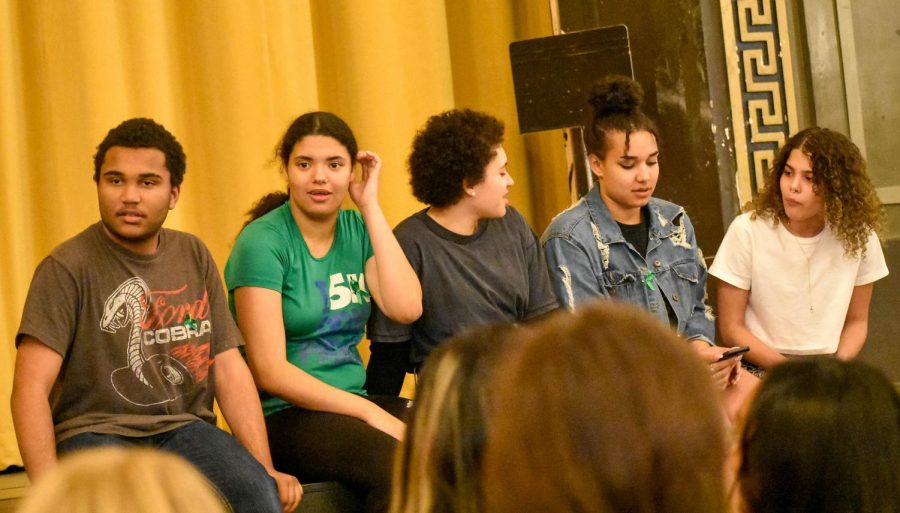
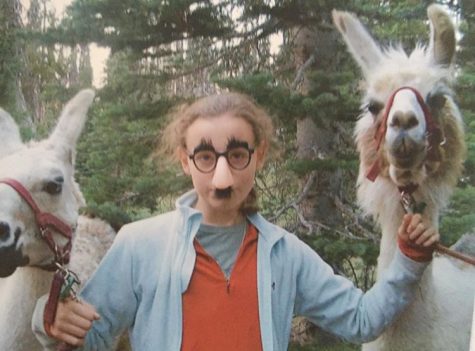
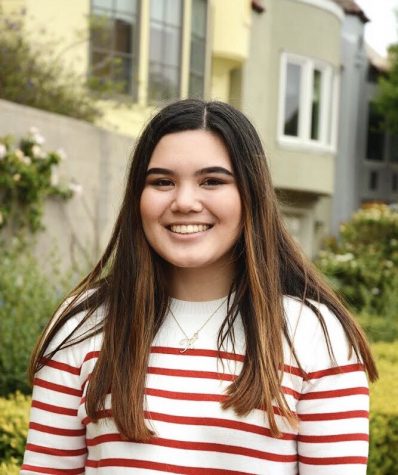
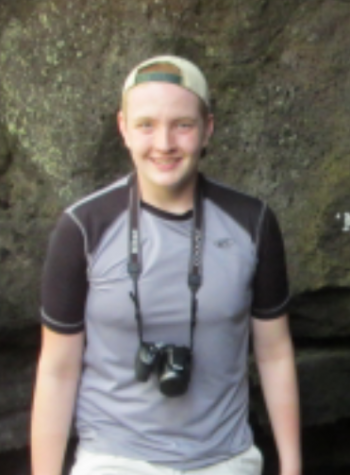
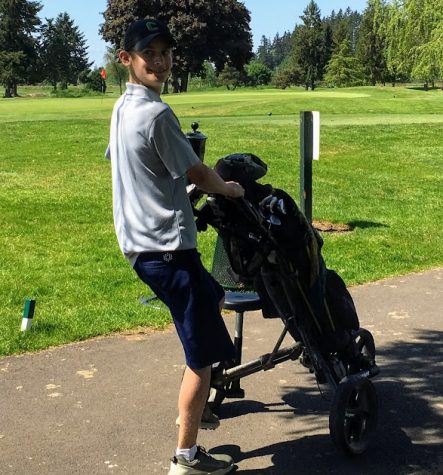
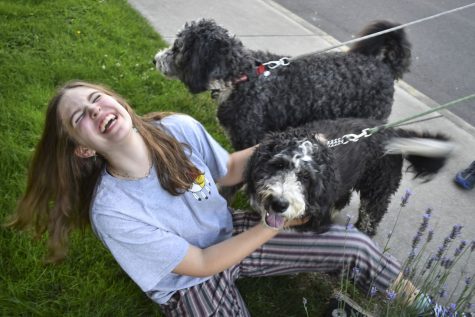
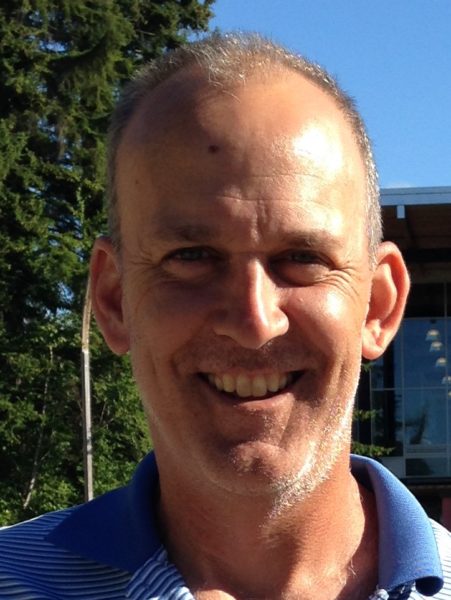

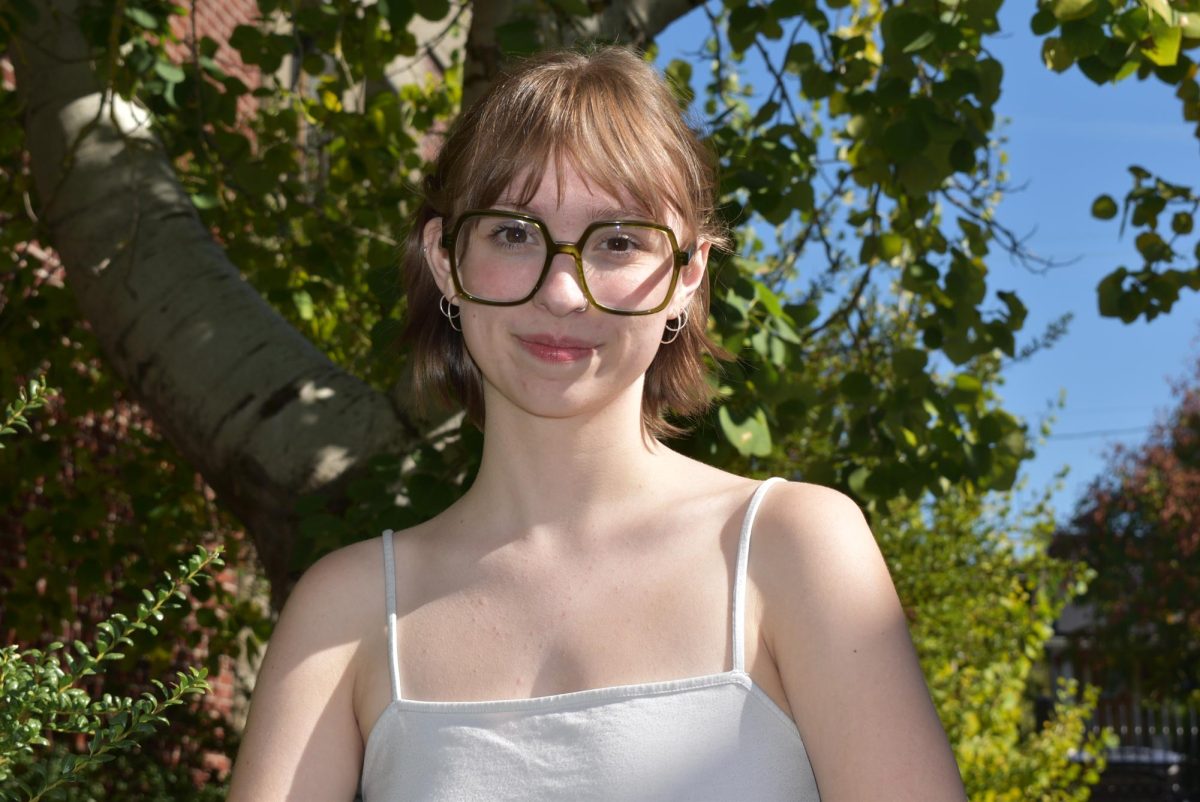
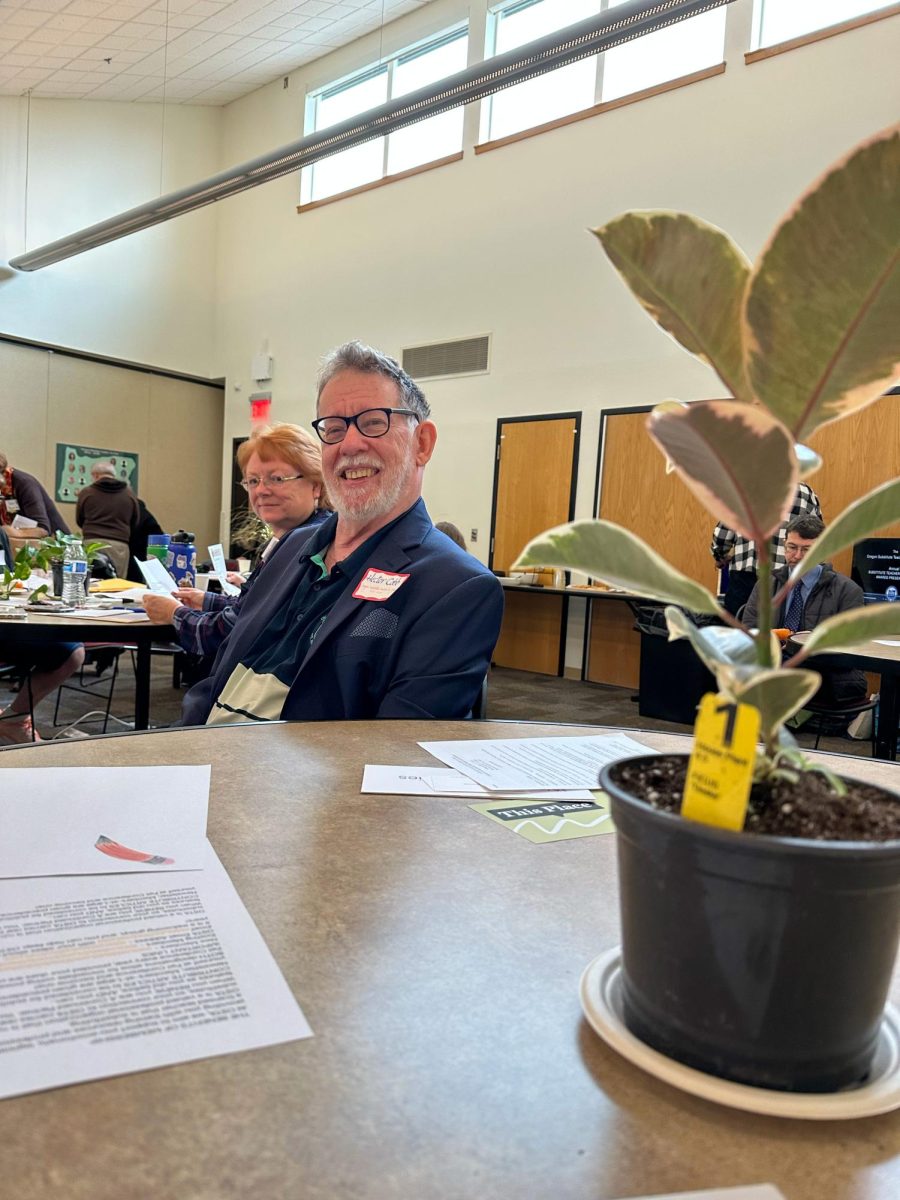

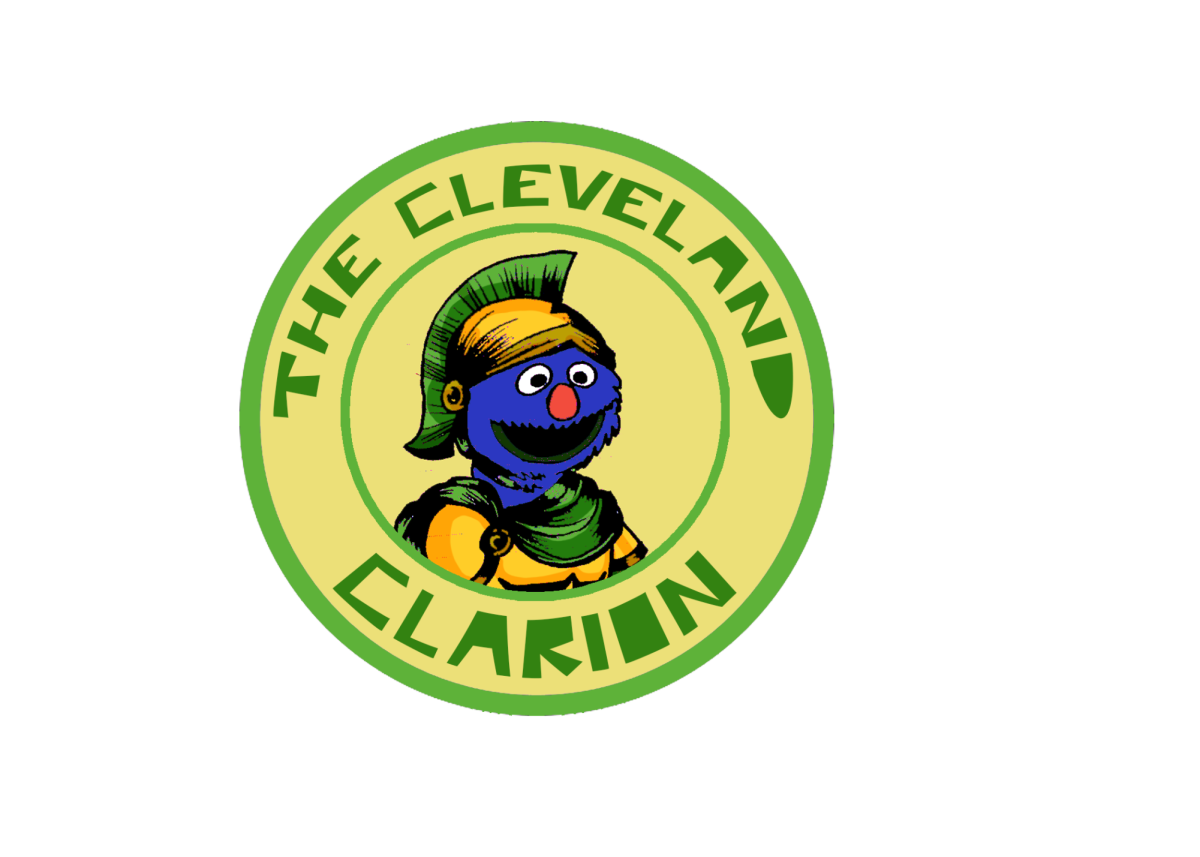
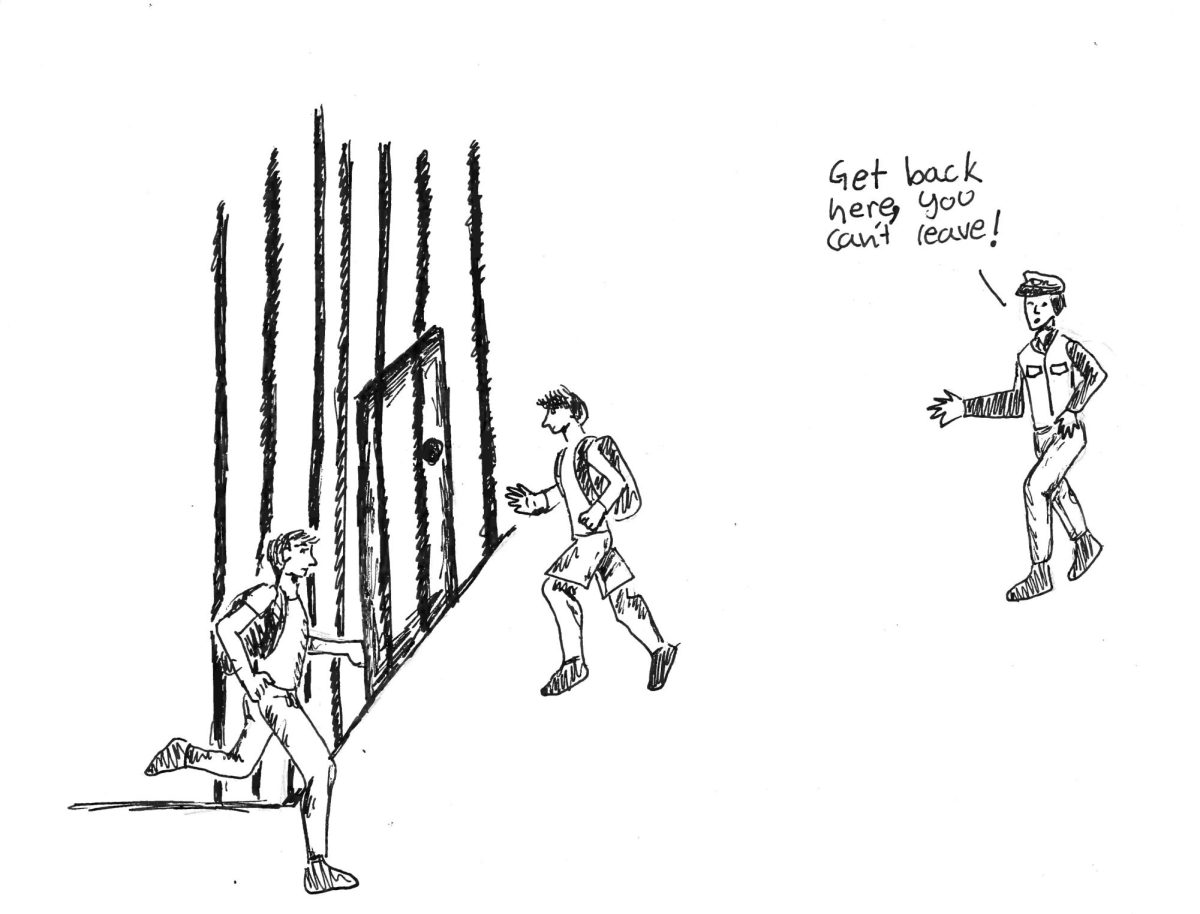

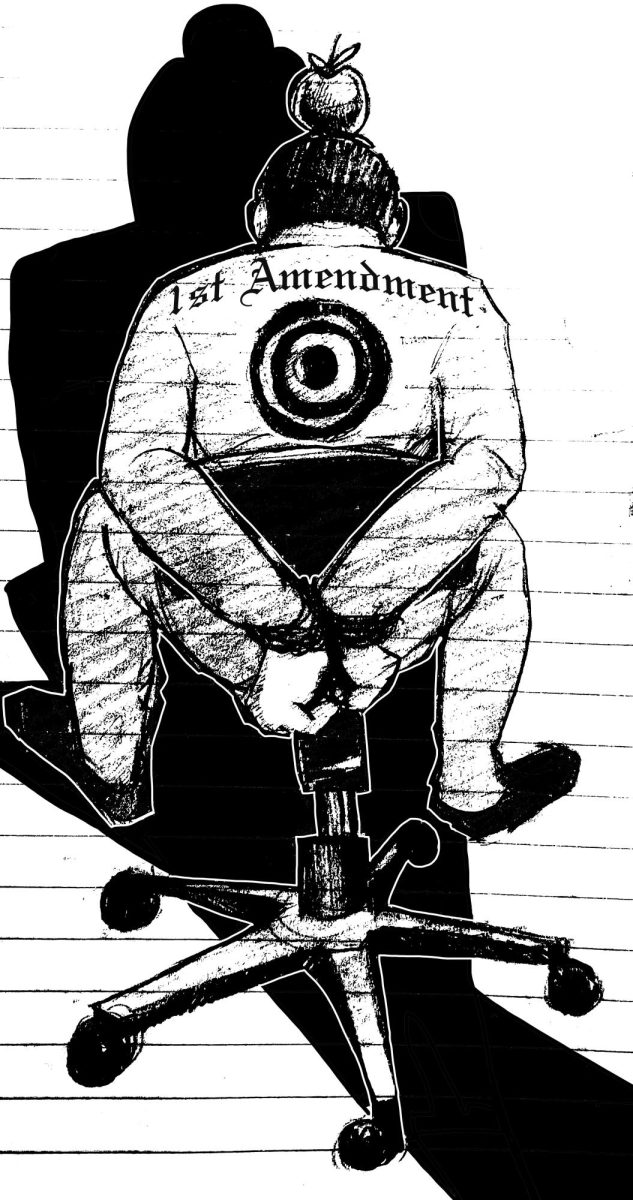
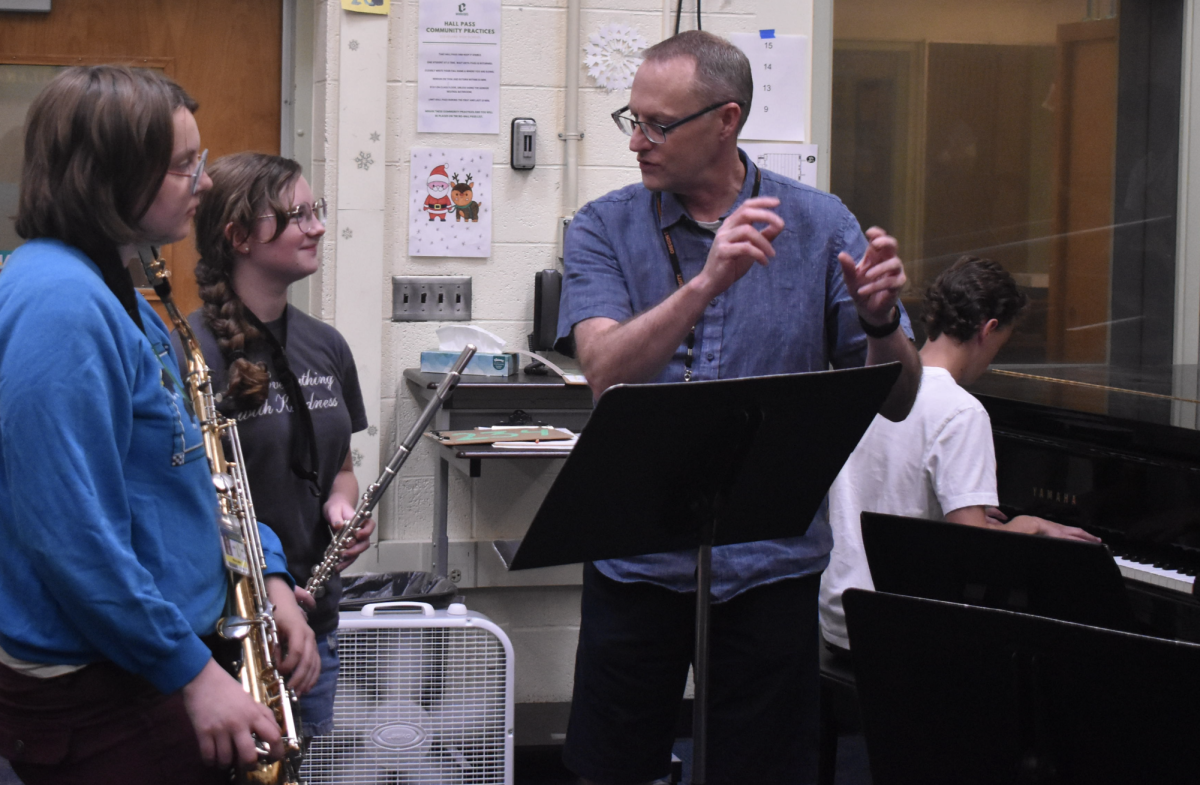
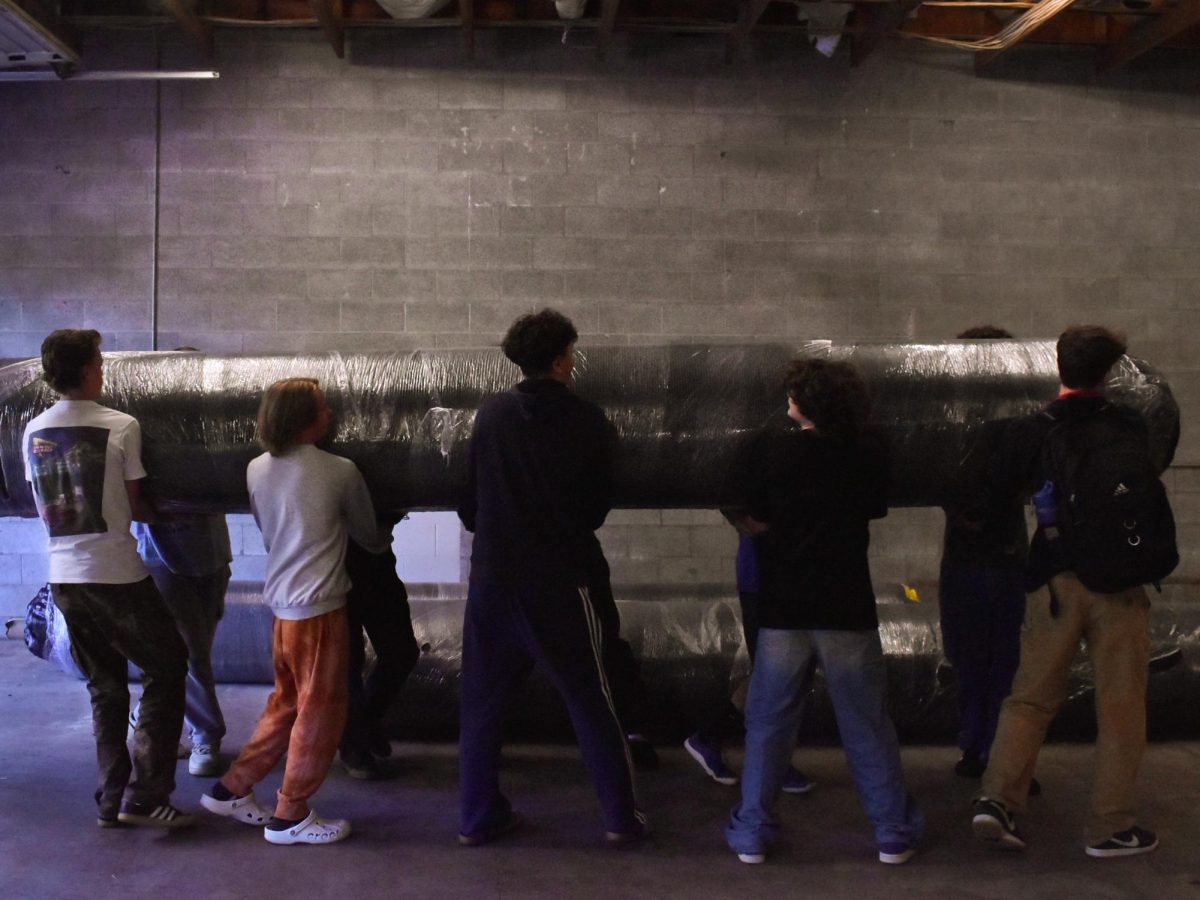
Maryam • Jul 5, 2020 at 12:18 PM
I feel hurt and offended by this. I know there are people out there that will tell me I am not “black enough” to feel offended but I am. This is disgraceful and should be talked about more. Spread the word. You are never too small to make a difference!! ✊?✊?✊?✊?
adyna • Jul 5, 2020 at 5:20 AM
black lives matter?✊?
fatima • Jul 5, 2020 at 1:45 AM
gen z we can do it lets stop this
Jihan • Jul 5, 2020 at 1:22 AM
I believe that this discussion isn’t has common as u want it to be and it breaks my heart that I can’t do anything to help instead of signing petitions, my school is an Islamic school but we don’t talk about these thing as much as we are supposed to I really do want to help by talking about it more often and reach donation but inshallah it will get better and we should trust in god.